This post has not been edited by the GamesBeat staff. Opinions by GamesBeat community writers do not necessarily reflect those of the staff.
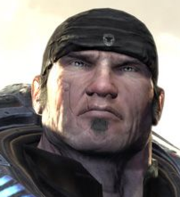 It’s difficult to argue the fact that it’s more common to see commentaries or articles addressing the misrepresentation of women in games. In a lot of ways, they’re still the underdogs of this industry, so it’s understandably easy to focus more on their woes than anything else. However, few gamers seem to notice or address the fact that men are just as misrepresented in games as their Venusian counterparts.
It’s difficult to argue the fact that it’s more common to see commentaries or articles addressing the misrepresentation of women in games. In a lot of ways, they’re still the underdogs of this industry, so it’s understandably easy to focus more on their woes than anything else. However, few gamers seem to notice or address the fact that men are just as misrepresented in games as their Venusian counterparts.
Now, I’m not going to pretend that I’m an authority on something as up-in-the-air as masculinity, but it’s obvious to almost anyone that manhood has just as little to do with blowing shit up and big muscles as womanhood has to do with submissive behavior and large breasts. Here, I take a look at the overbearingly juvenile image of masculinity in video games and which games have done justice to the male image.
Help, I can’t wipe my own ass!
Games are, first and foremost, a visual medium. With that said, visuals can and usually do dictate the methods in which designers convey underlying themes. The context of a male’s character has become almost entirely dependant on their physical aesthetics and, likewise, tends to dictate the more important aspects of their being. Games with an abundance of action typically feature implausibly bulky and beefy characters.
Without even a moment of thought, it’s almost impossible to incorrectly guess the disposition of a male character when you first gaze upon his non-existent neckline or his biceps that resemble the ass of a Brazilian bikini model. The reason Master Chief and Marcus Phoenix are men of few words is because they didn’t spend all that time in the gym to resolve their differences verbally. Grr…
While the media is oh-so-heavily occupied on entertainment’s negative influence on women and how they view their bodies, here is an interactive medium predominantly aimed towards males that features a more unrealistic and unattainable view of the male physique than that of any supermodel. While I don’t typically find this personally threatening, and while I do admit to enjoying such overly ridiculous romps through the world of male douchebaggery, it’s difficult to argue that such representations are silly and restrict video games even more from becoming a respectable artform.
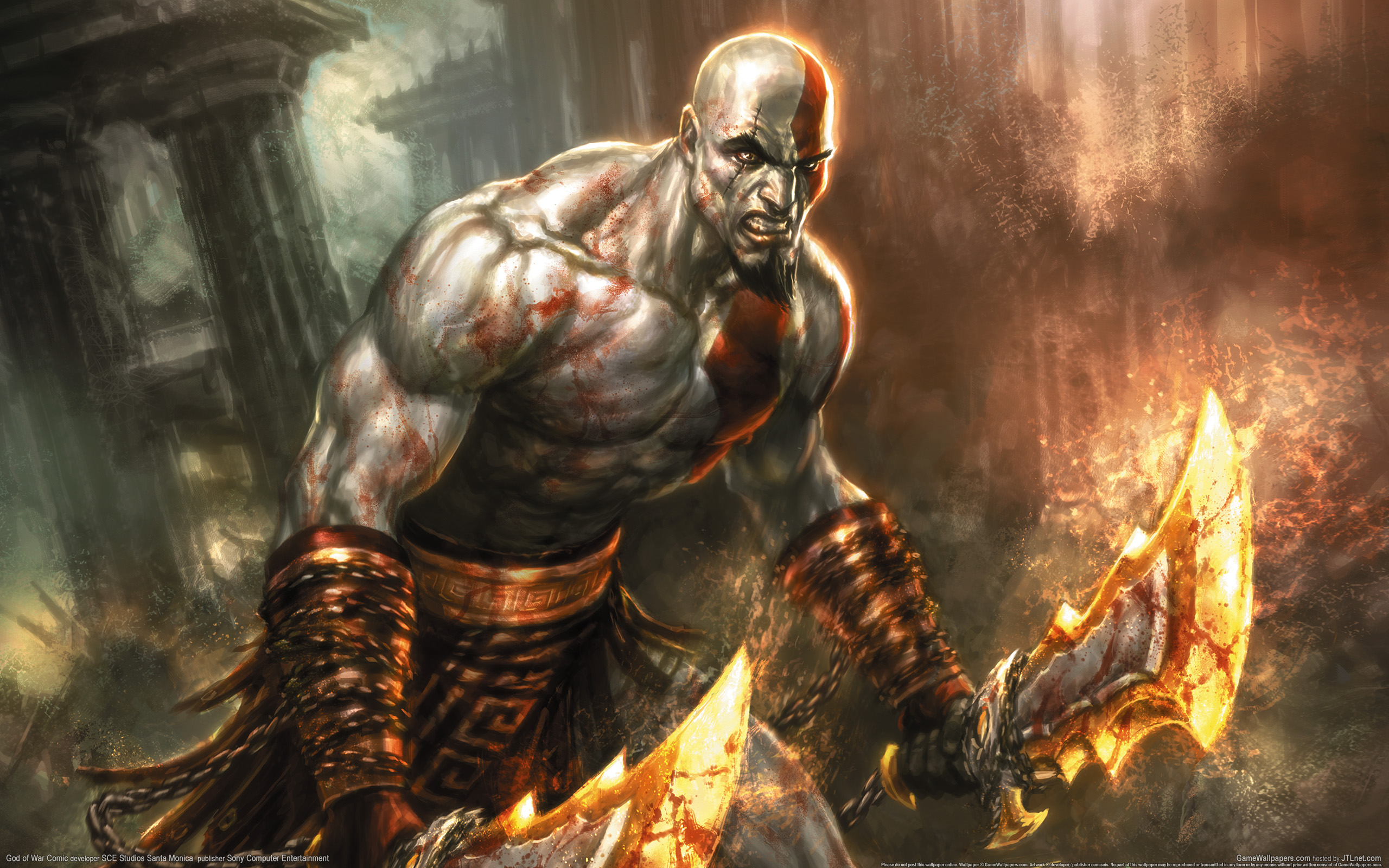
You might be able to relate to Kratos if you eat babies.
Every medium has their overbearing misrepresentations of sex and gender, however they balance the bad with diversity and variety. While there are plenty of games out there that feature mentally strong and psychologically deep male characters, the majority of video games substitute brains for brawn.
It would be easy to completely blame the market alone for such unbalanced trends, however one can assume that the troglodytic geeks that make up a portion of the industry’s workforce might find such fantasies just as appealing. This is pure speculation, of course, but it’s only fair to look at every area of where such a trend could stem from.
It’s also important to note that musculature doesn’t always undermine a person’s character. It often makes sense for action characters to be fit, and, if done correctly, can compliment the overall constitution of a character. However, this is still not the case for the majority of male characters seen in video games. A lot of them remain as one-dimensional as a Stephanie Meyers character.
Time will only tell if companies will bother attempting to address this childish trend, or if the market’s lack of demand for deeper characters will perpetuate it.
We make things go boom. Yay.
Men, by nature, can be very destructive. I’m not going to get too deep into it, but, considering the resume of atrocious events that is world history, mankind has a reputation for being temperamental and hostile. While there is a lot of glory to be found in physical hardship, and while some video games have portrayed this beautifully, most games use violence and destruction as a mere excuse for getting from point A to point B.
Killing an immeasurable amount of people – innocent or not – has become commonplace within video games. It has become so common and accepted that every element of game design, from gameplay to the narrative, works with it in the same way a literary narrative works with a main character’s footsteps. A male character is simply not doing his job right unless he’s putting a bullet between the eyes of everything in his path.
While it is just as easy to see a female lead with the same tendencies, overall it is more common to find male characters that shoot first and ask questions later. It’s understandable that such a degree of gameplay caters to the somewhat aggressive nature that resides in all men, of course, but it also does a fine job of painting a bad image of masculinity and male nature in general.
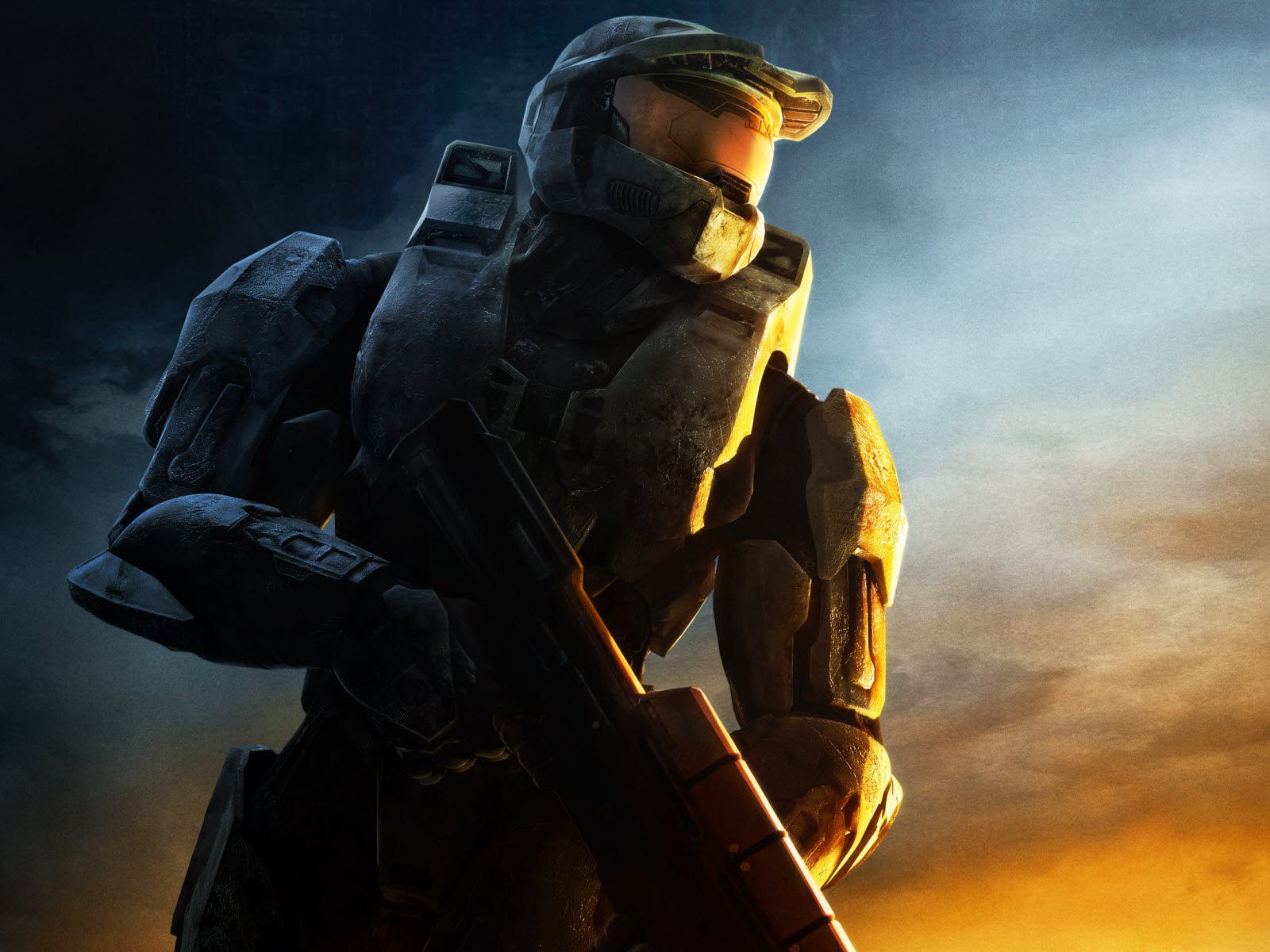
"I let my gun do the talking. And by my gun I mean my penis."
Again, the reason Master Chief and Marcus Phoenix are men of few words is because they are all business and words are for pussies. I’m not going to roleplay as a mother and pretend that fighting is never a reasonable way to settle a dispute, but the way games go about conflict is akin to middle-schoolers having at it by the flagpole during lunch. The industry retains a 13-year-old’s idea of how men resolve discord.
I already stated in another article that games are interactive and therefore it is considerably difficult to make them engaging without making them overly action-packed or violent. However, games provide little to no context or explanation towards a characters violent actions. Either this, or games are only able to provide characters where violence is their only option/means of expression (e.g. Kratos).
With that said, there are some developers who have not only admirably portrayed more uncommon traits of masculinity, but have also effectively and creatively portrayed the more stereotypical traits.
Grand Theft Auto
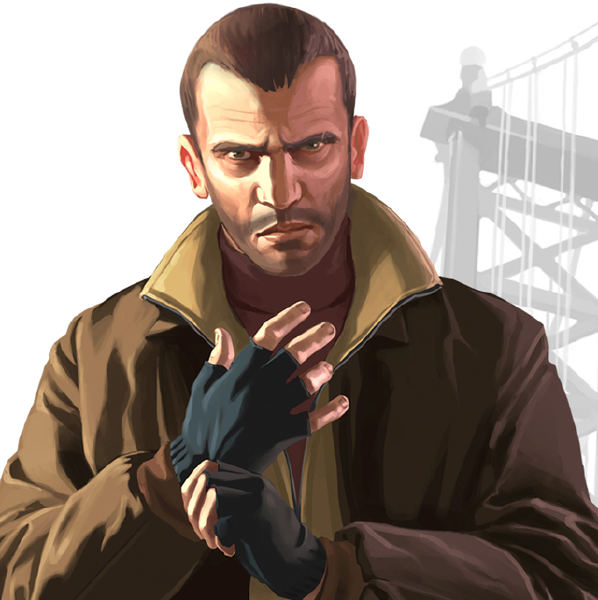 I know this is a surprising first example. After all, the Grand Theft Auto series is known mostly for its over-glorification of shameless violence. The series’ narratives, however, often feature male characters that are, more or less, forced into a world they would much rather avoid.
I know this is a surprising first example. After all, the Grand Theft Auto series is known mostly for its over-glorification of shameless violence. The series’ narratives, however, often feature male characters that are, more or less, forced into a world they would much rather avoid.
Characters like Carl “CJ” Johnson and Nico Bellic aspire for normal and peaceful lives, however they are obligated to aid those they are emotionally tied to and eventually find themselves reintroduced into lives they sought to escape. Subsequently, the characters are conflicted with the realization that perhaps what they are good at is what matters the most, and crime is what they are good at.
This is reminiscent of Michael Corleone’s famous line, “Just when I thought I was out, they pull me back in.” While the sentiment is not necessarily original, it alludes to the masculine perception of duty and calling. These perceptions are paramount towards the everyday goals and aspirations of men, therefore such traits are easily relatable and make male characters like Nico Bellic and John Marston instantly identifiable.
While these characters do bear the common violent tendencies that can tarnish the male image, they also show conflict between their distaste for such a lifestyle and their assumed calling towards it. Their violent actions are given substance – at least more substance than what is usually given to the violent actions of other game characters.
Mass Effect
 No matter what you name him or how you play him, Shepherd conveys a lot of depth towards the quintessential leader role. This role is quite prevalent in Western RPGs, though the ability to choose how you lead gives games like Mass Effect an added depth towards this role.
No matter what you name him or how you play him, Shepherd conveys a lot of depth towards the quintessential leader role. This role is quite prevalent in Western RPGs, though the ability to choose how you lead gives games like Mass Effect an added depth towards this role.
Shepherd is an everyman character that portrays the dichotomy of leadership: nobility or ruthlessness. Both sides of Shepherd provide a significant look into the separate conflicts that come with this role. Not only is the burden of choice a conflict in these games and with these characters, but also are the results of those choices.
In terms of masculinity, this caters to a man’s instinct to take charge and lead. This is not necessarily in an alpha-male controlling sort of way, but in more of an influentially superior sort of way. The social hierarchy that resides in masculine nature has been translated over into several other facets of social life, from the corporate world to the military.
There are several people who like to point out that Shepherd is a “sexless” character, and that he can just as easily be a woman. But, given the game’s marketing, and the overall themes that the game conveys, it’s difficult to argue that a game like Mass Effect is more aimed towards males.
Either way, this is a good thing. A game like Mass Effect provides all of the fist-pumping action and drama that the average male ego enjoys, while also providing a significant amount of insight towards the overall nature of male dominance and leadership.
Uncharted: Drake’s Fortune
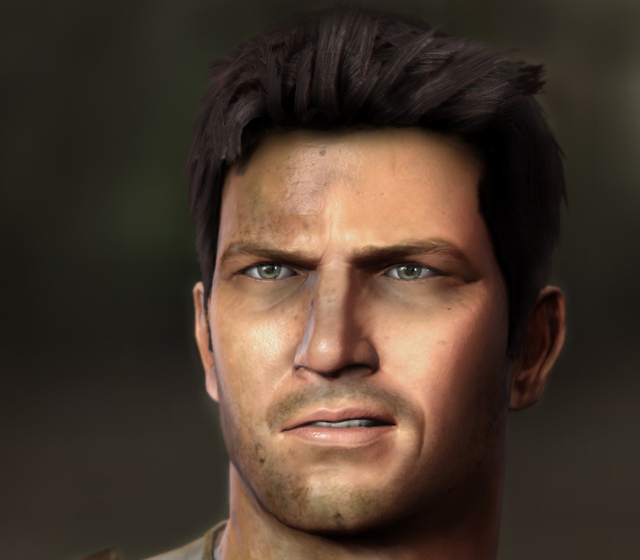 There is a saying I heard in the past that I often like to recite during topics like these: boys own adventure. Games like Uncharted: Drake’s Fortune do a fine job of reminding us that the adventurous spirit of masculinity has conjured some fantastic journeys. These games remind us that if there’s one thing boys know how do – and know how to do well – it’s have fun.
There is a saying I heard in the past that I often like to recite during topics like these: boys own adventure. Games like Uncharted: Drake’s Fortune do a fine job of reminding us that the adventurous spirit of masculinity has conjured some fantastic journeys. These games remind us that if there’s one thing boys know how do – and know how to do well – it’s have fun.
While Nathan Drake is a very vibrant and well-dialogued character, he is a fairly common everyman used to simply get the character from one grand adventure to the next. Characters like Drake are very basic by nature, and are more subject to the world around them and their quest at hand than the opposite. The most important feature of games like these is the journey and the perils and triumphs that come with it. This is why it’s fairly easy to compare Nathan Drake with other adventurous characters. At times, they are almost exactly the same.
This is, in no way at all, a bad thing. This is merely a simple tool for unraveling the most important aspect of these games, the adventure itself. When you’re a boy, playing soldiers or space rangers, you weren’t so much focused on whom you were, but more on what you were doing. What mattered the most was defeating the Nazis or aliens.
In nature, very little is meant to tie a man down, therefore it is in our own nature to “journey” outward and explore the different avenues open to us in our lives. While modern society doesn’t make this so easy to do, we use outlets like films and video games to satiate the thirst of that nature. Every adventure film or video game is a “what if” scenario for men who, if they could, would love to be a smarmy treasure hunter or a gallant knight.
Games like these do a fine job of conveying the less-vile and adventurous nature of masculinity. While these games can and sometimes do feature a lot of the aforementioned faux pas that tarnish the image of masculinity, they also reinvigorate it with the fact that only boys would be daring enough (and, in a lot of ways, stupid enough) to race a psychotic Serbian war criminal to Shambhala.
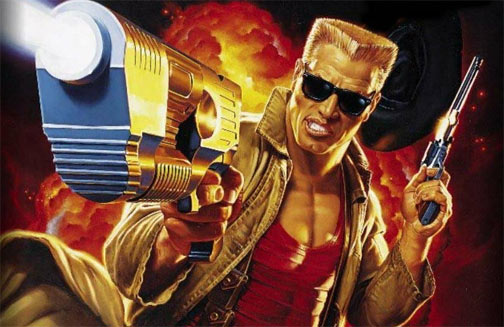
Games are still in their infancy and, indeed, have a lot of growing up to do. While most games are nothing more than simple, shameless fun, it’s difficult to ignore the obvious ways in which most games misrepresent men and how men behave. There are plenty of examples of games that do them justice, sure, however it is clear that video games, as a whole, have a difficult time portraying men without making them appear as mindless, juiced-up apes.
It’s inevitable that games will grow with their audience, of course. Time will only tell how the industry will bother to address these problems. In the meantime, I suppose it’s best that we appreciate the developers who bother offering male characters with depth and variety, as opposed to the developers who can’t seem to get their heads out of the sixth grade.
